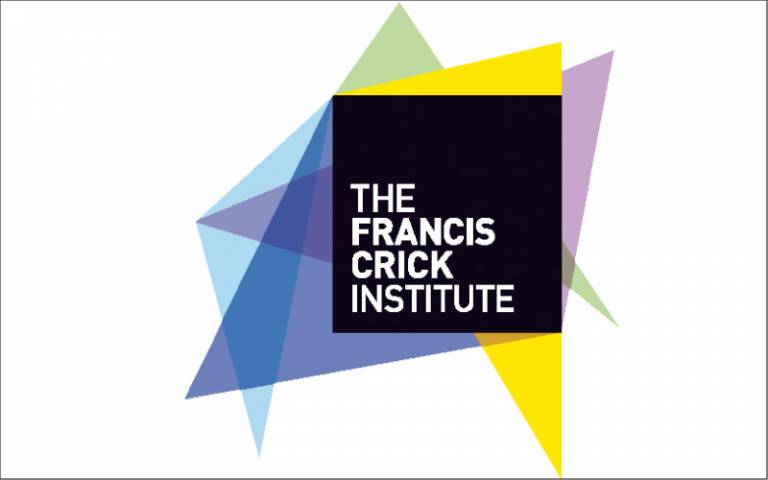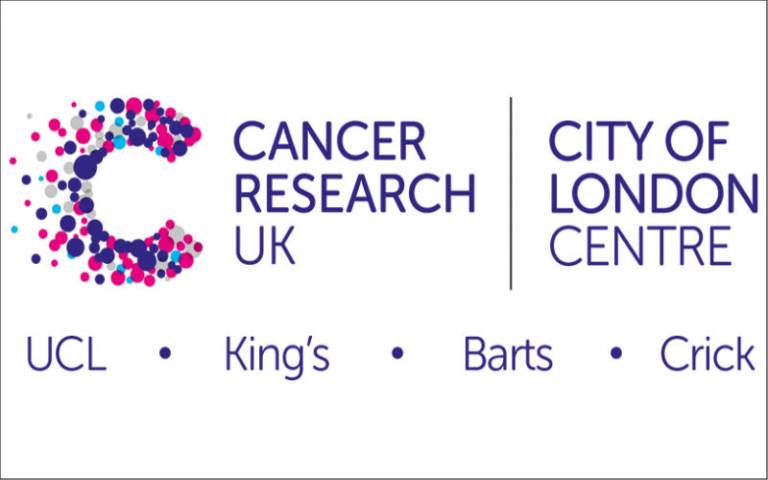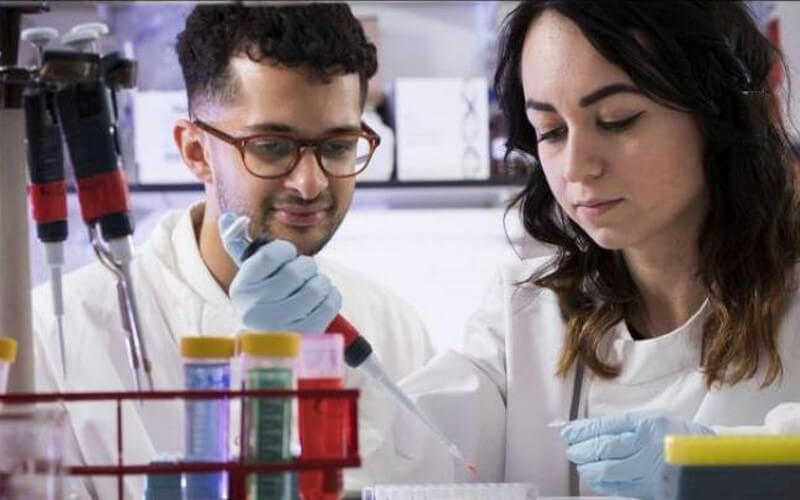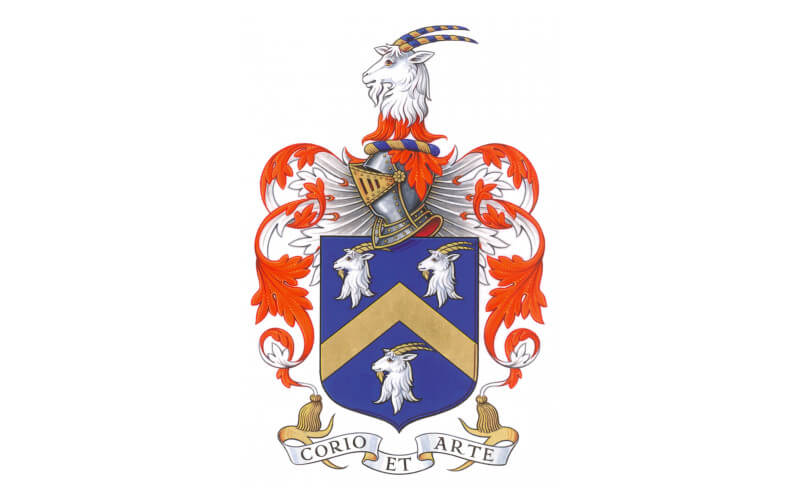MBPhD
About the programme
This three-year research degree is ideal for budding clinician-scientists with commitment, enthusiasm and a willingness to learn. It sits between MBBS Year 4 and Year 5.
After completing Year 4 of the MBBS programme at UCL, MBPhD students switch to full-time research studies for three years. You re-enter MBBS Years 5 and 6 after submitting your thesis.
A regular clinical teaching programme keeps your clinical skills and knowledge up to date during the research phase.
You may be based in the Division of Medicine or in one of several world-class institutes, such as the Institute of Child Health, the Institute of Neurology, or the Institute of Ophthalmology. You can also choose projects at the Francis Crick Institute and the Cancer Research UK City of London Centre.
MBPhD graduates become professors, research group leaders and consultants based all over the world. Graduates can work in academia, clinical medicine, the pharmaceutical industry, public health planning, or even in financial services around funding for clinical commercial ventures.

Admissions
- Are you eligible?
The programme is currently only available to students who are currently undertaking the MBBS Primary Medical Qualification at UCL Medical School. Applications must be made during your IBSc year, or in MBBS Year 2 if you are already a graduate.
At the point of entry, all successful applicants must have:
- Completed the first two years of their primary medical qualification (MBBS) at UCL.
- Achieved an upper second- or first-class honours degree (BSc/iBSc).
- Passed MBBS Year 4 at UCL (first attempt).
Please contact med.mbphd@ucl.ac.uk for more details.
UCL Medical School allows interruptions to undertake PhDs as well as the MBPhD. Please consider whether the MBPhD is the right programme for you - we are happy to talk this through with you before you apply. If you are interested in a particular PhD programme at UCL or at another university, you should apply directly to that programme rather than to the MBPhD. Please discuss any non-MBPhD interruption with one of the Divisional Tutors.
- Selecting a supervisor
Your supervisory panel
You will have a Principal and a Subsidiary Supervisor. Your Principal Supervisor must be based at UCL, unless your MBPhD is with The Francis Crick Institute. All supervisors must be approved by the Faculty Graduate Tutor to undertake supervision before the start of the MBPhD. The MBPhD Programme Administrator can check on the status of any prospective supervisor. All students have a thesis committee which may also include members of collaborating bodies if they have specific expertise relevant to your research.
You don't need to have a supervisor or project arranged when you apply. We will give you guidance on this once you have been accepted onto the programme.
Selecting a supervisor
Selecting a supervisor is vital, so you need to take your time and get it right.
Firstly, you express an interest in a field. The MBPhD programme tutors will guide you towards suitable potential supervisors or research groups to investigate. Many excellent supervisors may not be immediately obvious.
You can approach anyone. Supervisors are used to these enquiries by email. Keep it short: summarise your current position and your specific interest in a PhD. If the supervisor is interested in your ideas, they will set up a short meeting to chat about your interests.
Golden rules
We recommend three rules that should guide your search for a supervisor:
- A track record of international research, with high quality publications. Use PubMed and the IRIS system to confirm the themes of their research and check any research group websites. You want to aim for the research group of a current or future world leader.
- Meet before making any decisions. The professional relationship lasts several years. It is helpful to meet and get an idea about what sort of a supervisor they are and whether they will be a good fit for you. You need to be able to get along, but also be inspired and guided.
- Meet students in the research group to find out about the group and how your potential supervisor treats them. Ideally, you can get an honest opinion. If there are no students, this may be a cause for concern.
Explore the current projects within the School of Life and Medical Sciences. There are several projects available to students who are successful in their application to the MBPhD programme and who are awarded CRUK CoL funding for cancer research.
See which experts have supervised our students.
Your supervisors' duties
Principal and subsidiary supervisors' duties are listed in the Code of Practice for Graduate Research Degrees.
- Funding
You are not expected to apply for your own funding.
You may be matched with a project and supervisor that already has funding (or a funding application) in place. You may also wish to work with a supervisor who you have already worked with and they will need to apply for funding for you. The MBPhD programme works with a few funders and we may be able to apply for funding from them but the options are extremely limited.
As with any PhD, a funding package - known as a studentship - will normally include a stipend (a living allowance), tuition fees and bench fees. Funders will generally only pay tuition fees at the UK rate.
The maximum stipend is the Wellcome Trust rate. Most students receive the UCL minimum stipend, which is £19,668 for 2022/23 and £20,622 for 2023/24. Exact amounts vary by funding body.
Overseas students must find further funding to cover the difference between home and overseas fees, such as the Research Excellence Scholarship (you will need to apply for the RES during the iBSc year). Your supervisor may be willing to fund the difference between home and overseas fees. In most cases, overseas students may use personal/ family resources to fund the difference: please contact MBPhD Administration (med.mbphd@ucl.ac.uk) to discuss.
You can also apply for a wide range of additional funding via the UCL Scholarships & Funding office.
Project supervisors and MBPhD Programme Tutors will help you identify sources of funding once a project is confirmed. You do not need to explore funding options before applying.
Previous sources of funding include UCL Hospitals NHS Foundation Trust, The Astor Foundation, CRUK, The Rosetrees Trust, The London Centre for Nanotechnology, AstraZeneca, and the Royal Free Charitable Trust. Successful applicants can apply for studentships at the Francis Crick Institute. Some projects are supported by grants made directly to supervisors.
See who has funded our former students
Funding for Year 4 of the MBBS is through the Student Loans Company (SLC). Funding for Years 5 and 6 is via the Government funding mechanisms (currently NHS Student Bursary) in place when you return to the MBBS. Applications to the SLC and NHS Bursary Office remain your responsibility.
We can provide confirmation that the MBPhD is a single integrated degree and the periods of MBBS and PhD registration. We must confirm the award date of the PhD as prior to, or within, the MBBS programme.
Student Finance England Doctoral Loan
A Postgraduate Doctoral Loan can help with course fees and living costs. Students who begin after August 2022 can borrow up to £27,892 (accurate as of January 2023). You need to apply within 9 months of the first day of the last academic year of the course.
- How and when to apply
All students embark on the PhD after having successfully completed MBBS Year 4 at UCL (i.e. in the September/ October of the next academic year).
From the 2023/24 application cycle, the MBPhD programme will only accept students applying during their IBSc year, or from MBBS Year 2 if they already hold an undergraduate degree, to start the PhD after having completed MBBS Year 4 in the September/October of the same calendar year. (Students applying in the Spring of 2024 will begin their PhD in the Autumn of 2025.)
What you need
You must submit the following:
- A signed copy of the application form.
- Your CV.
- Two or three references.
References
Your application requires a minimum of two references: one from your iBSc / BSc project supervisor or programme lead, and one from your pre-clinical tutor or supervisor.
You may also supply a third reference from a tutor who can comment on your lab skills / practical research ability if this is not reflected by your BSc. Equally, somebody who can comment on any additional research you have done may be useful for the recruitment panel to consider.
If referees intend to submit references directly to MBPhD Administration (med.mbphd@ucl.ac.uk), these must arrive by the deadline. You must note this intention on the application form, or by email to MBPhD Administration, otherwise it will be deemed incomplete.
Full details on how to apply are provided in the guidance notes.
Applications should be submitted by email to med.mbphd@ucl.ac.ukKey dates
- Applications open 25th March 2024
- Deadline for Spring 2024 applications (Autumn 2025 start): 14th May 2024 at 5pm.
Specialist opportunities

If you are accepted on the MBPhD programme, you can apply to conduct PhD research at the Francis Crick Institute. Applications are open from early October to mid-November and from mid-February to mid-March.

This unique network provides a crucial pipeline for cancer discovery science. If you are accepted onto the MBPhD, you can apply to conduct research under the supervision of experts at the CRUK CoL Centre. To be considered, please indicate this specific interest in your MBPhD application.
 Close
Close



